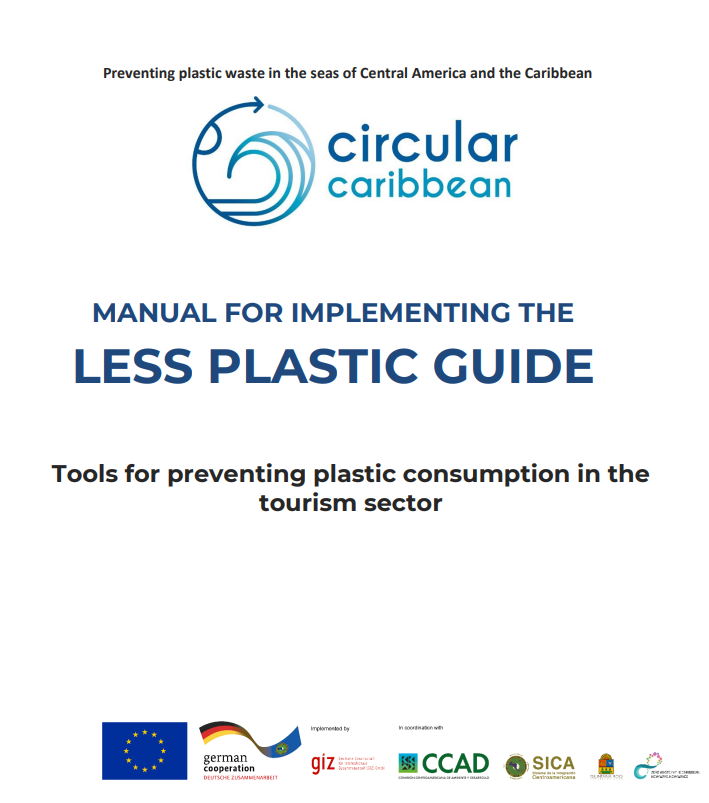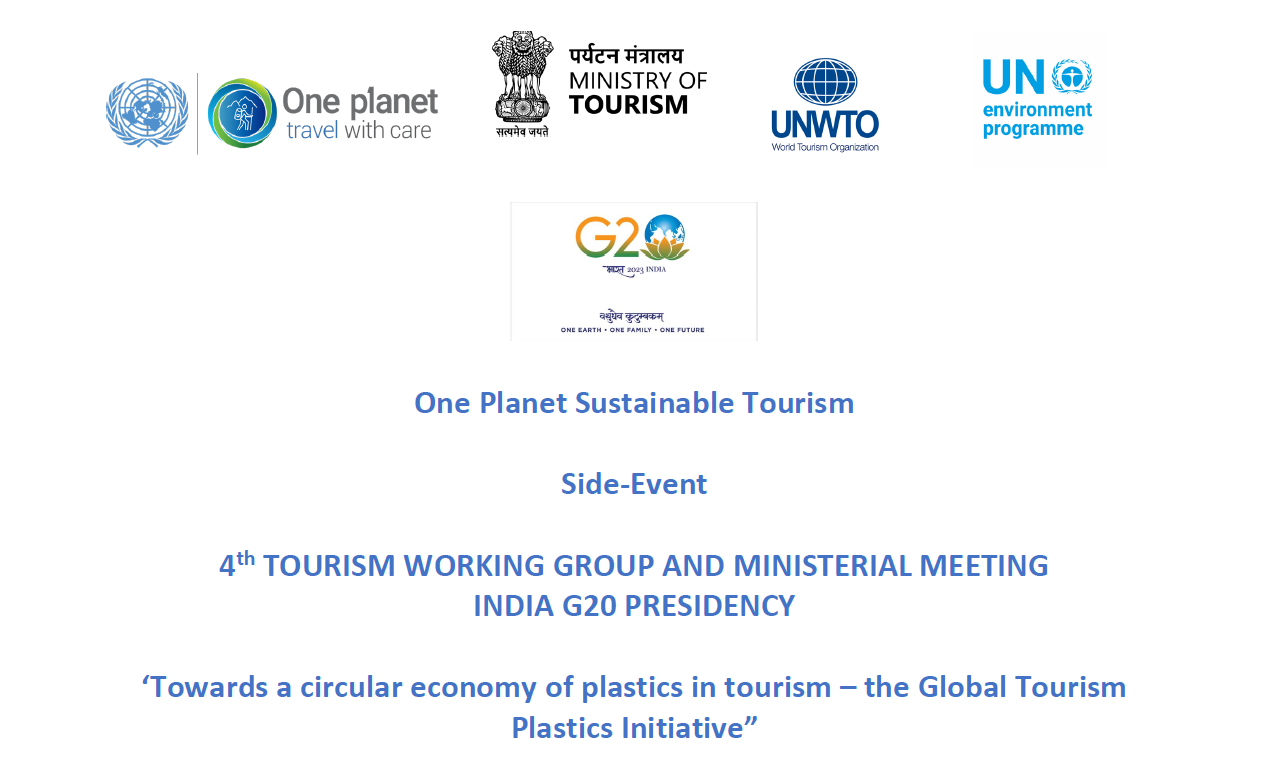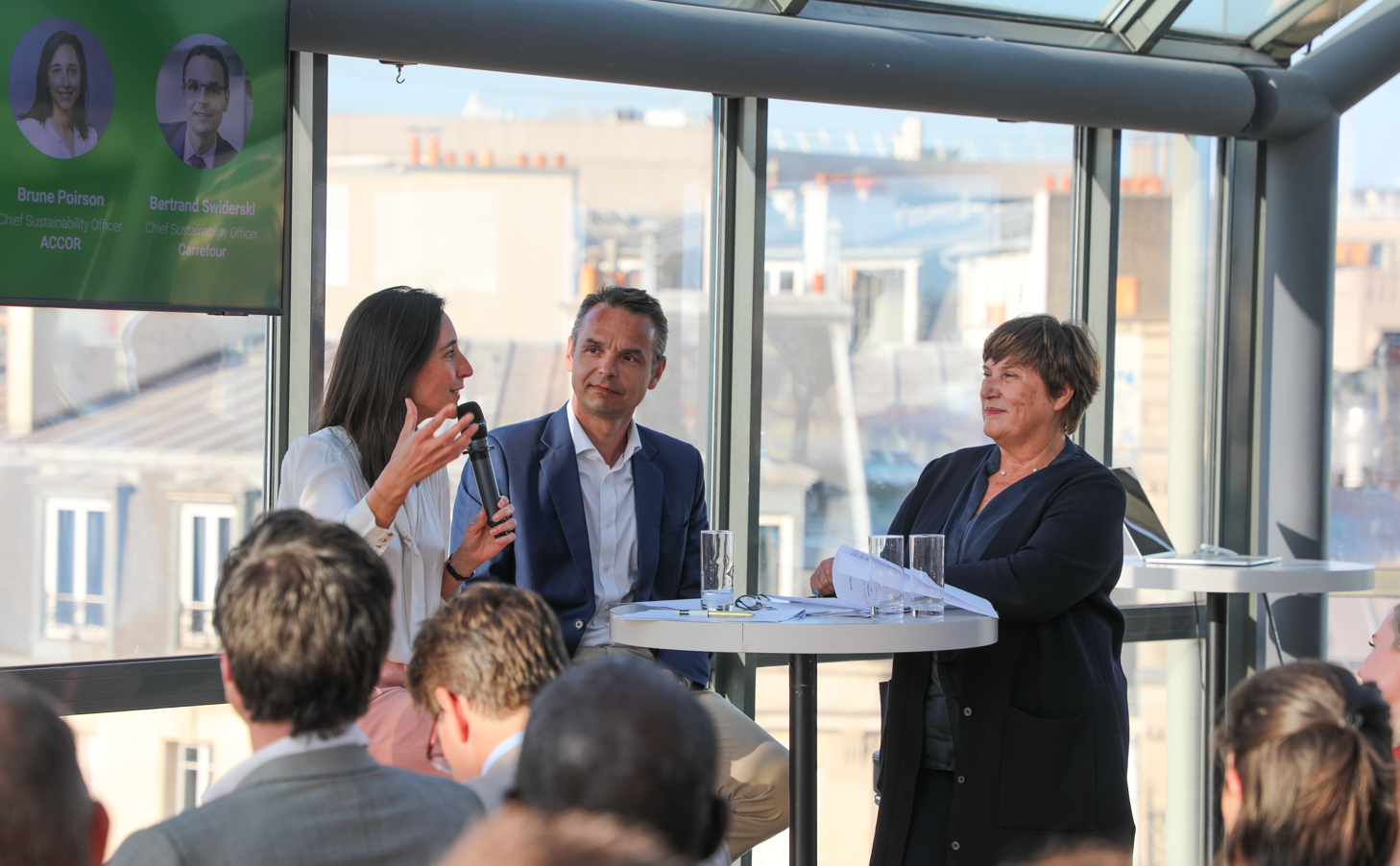Interview with Diana Koerner, Sibylle Riedmiller and Ulli Kloiber, of Chumbe Island Coral Park

Question (Q): Why is committing to tackle plastic pollution important to you?
Answer (A): The circular economy has from the beginning been an integral part of the design and operational systems, and this was also specifically outlined in the consecutive Management plans from 1995, including the one in force now for 2017-2027. Regarding plastic waste, this was actually helped by the fact that in the early 1990s, Tanzania had no food processing industry. Supply chains were very short, produce went unprocessed pretty straight from the farm and sea to the kitchen and people bought most food items fresh and unpacked in local markets. “Going local” was not only the healthiest choice for our cuisine, but supported also local producers and was the most cost-effective thing to do as most processed food items found in shops were imported, thus expensive.
With the development of tourism and the economy over the last three decades, cheap imported pre-packaged industrially processed foodstuff flooded the markets, together with single-use plastic packaging materials, bottles and plastic household items, and plastic started replacing traditional packaging materials, such as beautiful baskets and containers made from banana and coconut leaves and other local fibers. Plastic bags and bottles soon became so cheap and easily available that much was dumped on streets and along the beaches and started massively polluting the environment and the sea. The Government of Zanzibar took measures to stem the tide as early as from 2006 and imposed a ban on the import and production of at least plastic bags, which was later extended to their use in markets and shops.
Throughout these changes, the Chumbe management maintained the policy of purchasing restaurant supplies as much as possible fresh and unpackaged on local markets and from local producers, to maximize revenue streaming locally. This was then transported in large hand-made baskets to the island. Drinking water for guests on the island and office staff is provided through local suppliers, with re-useable large 20-liter plastic containers (to avoid any single-use plastics), and filled in recycled wine bottles wrapped in locally made coconut fiber and provided in all bungalows.
In the lodge we have also always provided soaps and shampoo in glass dispensers rather than plastic bottles or wraps, and also recommend in advance to our guests to bring only biodegradable, environmentally sensitive toiletries to the island to avoid chemical and micro-plastic pollution.
As all laundry is done off-island in the Chumbe head office in town, to conserve the limited water supplies available and avoid any detergent pollution on the island, linen is transported to the island in large 90-liter sealed plastic drums for protection against rain and splash water.
However, even though we have eliminated single use plastics from all our operations, we experience firsthand the impact that plastic pollution has on our ecosystem. Every day marine litter is washed up on our shores and collected by our rangers. Some of the litter has travelled very far, highlighting the global scale of the problem. In the Zanzibar archipelago we have limited to no recycling initiatives. Tourism is a large contributor to generating plastic waste on the islands and we want to raise awareness and help to develop solutions to the problem here.
Q: What are the benefits of including your commitment to sustainably and more specifically circular economy of plastics when communicating with potential visitors?
A: Next to our commitment to marine and forest conservation and ecotourism, environmental education and awareness raising are among the three core pillars of Chumbe’s operations and part of our daily work.
This does not only apply to school children and communities here in Zanzibar, but also on a wider level to our guests from around the world. By explaining the problems of marine pollution and showcasing alternatives to single use plastics, we can make sure that guests leave with a deeper understanding and commitment to protect our blue planet. It is true that visitors are increasingly aware of plastic pollution and expect hotel operators to do their bit. For us as a holistic marine conservation and ecotourism establishment we feel the need to act as a role model in Zanzibar when it comes to circular operations. But truthfully, for us it has never been about marketing, but about pure necessity that we have eliminated single-use and avoidable plastics right from the beginning of the project.
Q: Did you gain any competitive advantages in implementing the Global Tourism Plastics Initiative?
A: As mentioned above, avoidance of plastic pollution is an integral part of our eco-architecture designs and operations that we also market in our PR communications. Chumbe Island is recognized as a pioneer in environmental protection in Zanzibar but also in the wider international tourism community. Being part of the GTPI only adds to our credibility and connects us to other stakeholders worldwide to work on a larger scale solution. Ultimately this is what we are most interested about, finding approaches to a global problem that concerns all of us.
Q: Where did you start from and what are your next steps to implement a circular economy of plastics?
A: The avoidance of single-use plastic from our operations is applied to all our departments, be it for the packaging of food items, equipment and supplies. However, there are certain products or certain areas, where we still use plastics, e.g. for transporting cooking oil or dishwashing liquid. However, all plastic containers are either given a second life within our operations, or we collect them and hand them over to a local plastic recycling initiative, which repurposes them. Some of the items they produce, such as key rings and bottle openers are also sold on our island, together with information material for guests. We are very satisfied about the way plastics have been avoided and repurposed at Chumbe, now we see our responsibility at a wider destination level. Currently we are running a “Green Destination” campaign within Zanzibar for community members and, importantly, tourism stakeholders, such as hoteliers, which involves a series of workshops on waste management.
Q: Do you have an interesting example/project that you want to share with us?
A: We are proud to be working with several communities in Zanzibar on a Sustainable Waste Management campaign where we have organized cleanups and launched a competition to create pieces of art from the waste that was found. For this campaign, Chumbe's Environmental Education team joined hands with 10 Waste Ambassadors from 6 villages neighboring Chumbe, and provided education and training culminating in 6 massive beach clean ups, including analysis of collected waste. The overwhelming majority of marine debris found during the beach clean-ups was degraded plastic and styrofoam. Each village has since been building a sculpture in their village using the waste they collected to tell their waste issue story.
With this Sustainable Waste Management campaign, we have now also formed an international partnership with students and teachers of the Heidelberg International School in Germany. For the Environment Week (14-21 June), Grade 10 and Grade 2 students of H.I.S. have arranged Zoom calls with the Chumbe management team with question-and-answer sessions on sustainable development and marine pollution. The H.I.S. students have now also painted a beautiful rooftop Mandala on their school with a design inspired by the “Chumbe turtle” produced as a sculpture by Dimani villagers, and this design has also been used for producing cotton bags that are sold for fundraising for the Chumbe Education program.
Q: What challenges have you been confronted to in your implementation/promotion of circular economy of plastics and how did you manage to overcome them?
A: As a small island destination, the availability of alternatives to plastics is not always a given. We have to be creative and flexible in how we source our supplies. The fact that no large-scale recycling system exists can be disheartening at times, because our staff members might loose motivation, if they see that we are working in a small bubble and the majority of the tourism community is operating in a business as usual scenario, where there is no visible sign of eliminating plastics. As a small operation it might be perceived easy for us, but we also do not have the same bargaining power when it comes to suppliers, as we are simply too small to be able to convince them to change their usage of plastics.
Q: How did the COVID-19 crisis impact your ambitions?
A: The COVID-19 crisis jeopardized Chumbe Island’s project like never before. Considering that the entire protection of our private marine protected area and forest reserve, as well as our environmental education program for local school children rely on revenue generated through ecotourism, we went through a very difficult time. Our staff members have been with us for many years and depend on Chumbe, so the halt of tourism did not only put our entire operation at risk but also threatened our staff members and their families. Within Zanzibar as a tourism destination, you could instantly feel the effects of the pandemic on people’s livelihoods. For us the wellbeing of our local communities is an essential part of the equation. We cannot preach about eliminating plastics, if we know that communities are suffering. So, in a way the COVID-19 crisis was first of all a matter of survival. This being said we had to make sure that this did not impact our marine protected area and that patrols were being upheld and biodiversity protected. Collaborating with local recycling initiatives like Ozti that offer sources of income for local community members and showcase the benefits of a circular economy, even if it is only at small scale for now, are essential for us.
Q: Where do you stand so far with the implementation of your GTPI commitments?
A: Within our own operations we have full reached all our commitments to eliminate plastics, it is now that we are working within the wider value chain at destination level to first increase awareness and understanding and then push for specific solutions like composting at a wider scale. We will, therefore, campaign for and promote GTPI at the newly founded Hotels Association of Zanzibar (HAZ) and believe that many members will see the benefits they would have in joining, and thus helping to market Zanzibar as a greener and sustainable destination.
Q: What advice would you give to other SMEs to implement these ambitious goals?
A: What worked for us is to integrate sustainability within the DNA of our operations. Only by having a holistic approach the commitment to a circular economy of plastics and other materials will be fully embraced and upheld on a long-term basis. Our recommendation to other SMEs would be to take a step back and approach it in a way that it permeates all aspects of our operations. It is a process and results will not come overnight. It is important to accompany every action with the necessary training and awareness raising among staff, to ensure that everyone is on the same page as to why changes are being implemented. Importantly it might seem that as a SME one cannot have the same impact as let’s say a larger establishment, with which we disagree. Due to the size of our operations we have a very close relationship with all of our guests and can really commit to educating them. As for the supplies, it is also a process and it is important to identify those players that share the same values like you early on, this way you keep each other motivated and can grow the positive impact gradually.
Q: How do you work and engage with the local community?
A: As mentioned, our connection to the local community is part of what Chumbe stands for. Our management is closely tied to communities, where also most of our workers come from. The Chumbe Advisory Committee meets once a year and is comprised of a combination of Chumbe staff, academics, government and community representatives. Our environmental education programme has so far involved 8,309 students, 1,381 teachers, over 100 different learning institutions and 1,349 community members since it first started.
---
Chumbe Island Coral Park (CHICOP) are signatories of the Global Tourism Plastics Initiative, and this interview has been conducted as part of the Global Tourism Plastics Initiative newsletter, in partnership with Sustainable First. Click here to read more about their commitments, and here to read and sign-up to the newsletter.


